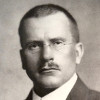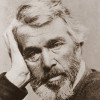“ a thoroughly immoral man could not know anything at all! To know a thing, what we can call knowing, a man must first love the thing, sympathize with it: that is, be virtuously related to it. If he have not the justice to put down his own selfishness at every turn, the courage to stand by the dangerous-true at every turn, how shall he know? ”
Thomas Carlyle, On Heroes, Hero-Worship, and The Heroic in History (1841). copy citation
| Author | Thomas Carlyle |
|---|---|
| Source | On Heroes, Hero-Worship, and The Heroic in History |
| Topic | selfishness justice |
| Date | 1841 |
| Language | English |
| Reference | |
| Note | |
| Weblink | http://www.gutenberg.org/files/1091/1091-h/1091-h.htm |
Context
“his courage, or want of courage, is visible in the word he utters, in the opinion he has formed, no less than in the stroke he strikes. He is one; and preaches the same Self abroad in all these ways.
Without hands a man might have feet, and could still walk: but, consider it,—without morality, intellect were impossible for him; a thoroughly immoral man could not know anything at all! To know a thing, what we can call knowing, a man must first love the thing, sympathize with it: that is, be virtuously related to it. If he have not the justice to put down his own selfishness at every turn, the courage to stand by the dangerous-true at every turn, how shall he know? His virtues, all of them, will lie recorded in his knowledge. Nature, with her truth, remains to the bad, to the selfish and the pusillanimous forever a sealed book: what such can know of Nature is mean, superficial, small;”
source



